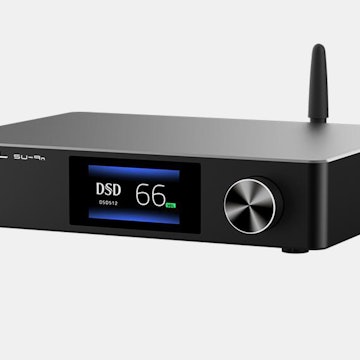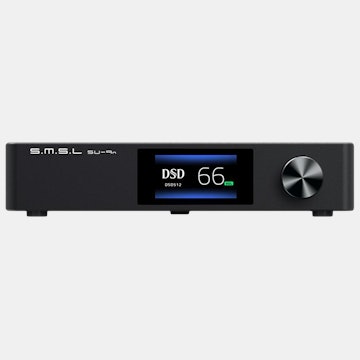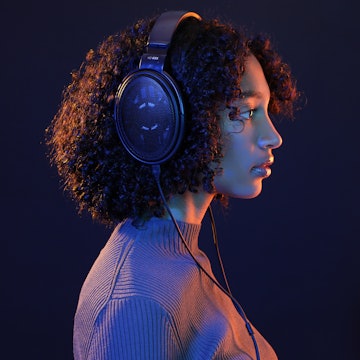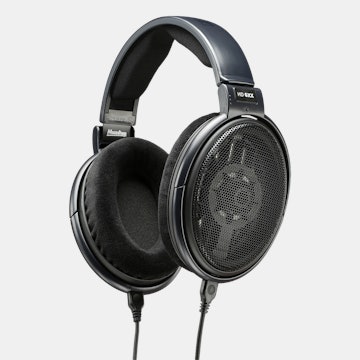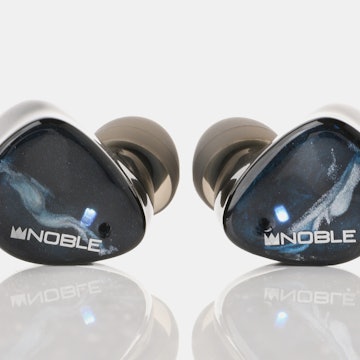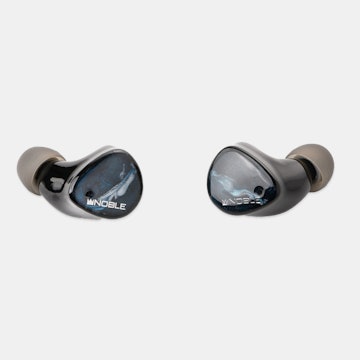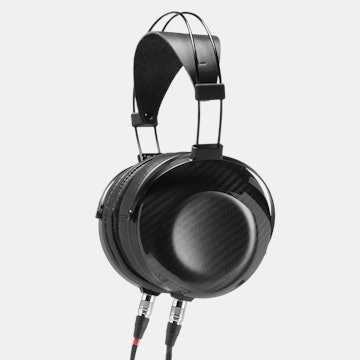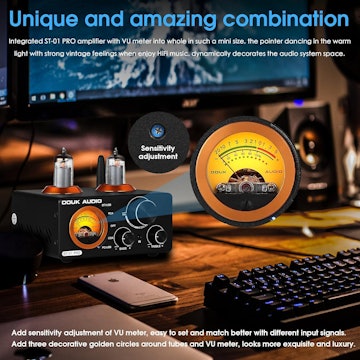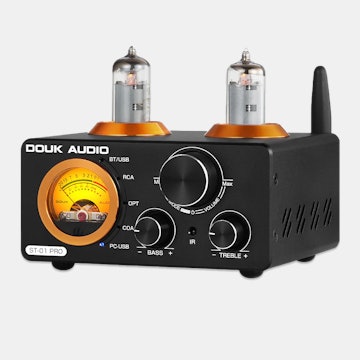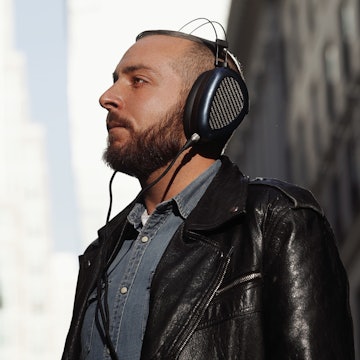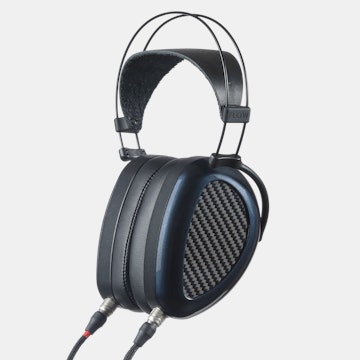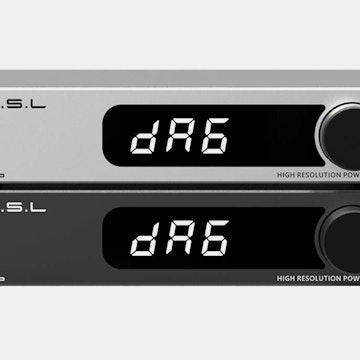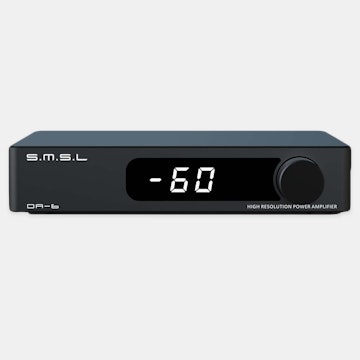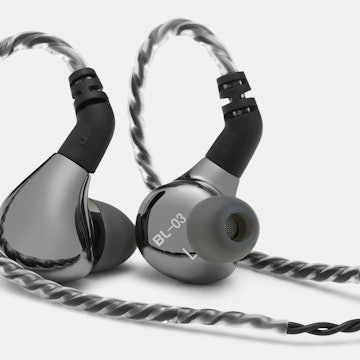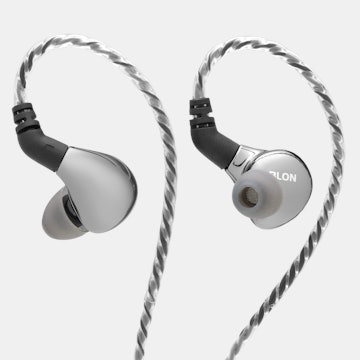Click to view our Accessibility Statement or contact us with accessibility-related questions










Showing 1 of 1093 conversations about:
Detomaso2
54
Aug 20, 2016
bookmark_border
I've been looking some site and they talking about "DSD 256". Wondering why Grace Design M9xx only decode DSD64 to 128...
CalebRoberts
56
Aug 21, 2016
bookmark_border
Detomaso2Hi Detomaso2, We've have a few inquiries over the years about DSD256. It always seemed to be from potential customers who are comparing specs between ours and other products. We may implement DSD256 sometime in the future if there is enough demand. Whenever someone asks, I respond with the questions.
Q1: - how is it going to work on the host computer? When we made this design it didn't seem that there was an established standard for encoding the data in PCM. The Windows driver did not support > 384kHz PCM. DSD128 requires 352.8kHz PCM for DoP encoding. So with the Windows driver DSD256 was out of range for DoP encoding. I don't recall when OSX began supporting 353 and 384kHz but it wasn't really that long ago. Perhaps OSX now supports 768kHz. I don't know if the player apps. on mac support this yet or if they will. Then there's "Native DSD" that is available via the ASIO driver. Last I checked the OSX core audio driver didn't provide for native dsd. There may be some 3rd party driver for mac and maybe it's becoming a mature technology. Maybe some users on this forum have invested the energy to figure these things out but I think that the vast majority of m9xx users are unconcerned with this encoding format.
Q2: (This should probably be the first question). Why do you want DSD256? Is there such a device as a DSD256 ADC that anyone is using to record music? I don't think so. I think that any DSD256 files you can find are just mathematical re-coding of PCM recordings. Our friends at http://www.2l.no have a catalog of beautiful recordings that are available in various PCM sample rates as well as DSD64, DSD128 and a few DSD256. I'm sure there are a few other sources. My understanding is that these are originally recorded in DXD (352.8kHz PCM). I don't know why anyone would want to alter the original recording by digitally re-coding to another format if they have the option to reproduce the original. We have a few good friends who were involved in various stages of developing DSD technology. Some consider DSD to be inferior to hi-res PCM. Original DSD recordings have very high out-of-band noise. Our other DSD technology friends like to point out that DSD64 is a great compromise between fidelity and computer file size. Speaking of file size, I'm looking at the size of a couple of DSD256 files - 840MB, 1.4GB. You'll find that these highest data rate encoding formats contain a very large percentage of unused or irrelevant data. Meanwhile, they involve lots of computer activity. DSD64, DSD128, DSD256...in some technologies the bigger number is clearly better; in other cases it's only good for marketing.

DJ15
12
Aug 22, 2016
bookmark_border
CalebRobertsHi, Caleb. While I absolutely appreciate your knowledgeable and well-founded answers on this subject, here's my perspective. Some people ask about DSD256 capability because the hardware should support it. As owner of the m920 I've asked that question too. I don't have any DSD256 files but I don't mind trying some. Adding DSD256 capability to the m920/m9xx may just be adding even more value and future-proofing to what are already excellent products. Who wouldn't want more value for their money? And then the credit goes to your design and the possibility for software upgrades rather than modifying hardware or coming back to the factory which may not be an option for some. Just my 2 cents.
CalebRoberts
56
Aug 23, 2016
bookmark_border
DJ15Hi DJ15, Just for the sake of accuracy: the hardware does support DSD256 - for both products. The software does not. The software in m9xx and m920 are field upgradable. I don't know whether we will ever implement DSD256 for these products. There would need to be an established standard for delivering the data from the host to the device that works for both PC and Mac. I think that should be determined by collaboration between the content providers and the media player software developers.
Meanwhile, If you had a DSD256 file, I think you could enable J-River to convert it to any other PCM or DSD sampling rate.

DJ15
12
Aug 23, 2016
bookmark_border
CalebRobertsThanks, Caleb. Could you please clarify a bit more? Maybe I don't understand it fully. Do you mean that at present there is no such established standard for both OS X and Windows? What about all those DSD256 capable DACs, are they somewhat unusable regarding this particular feature? Or do they operate through proprietary means (like exaSound driver)? I read about DSD256 recording equipment and I see there are some native DSD256 recordings already. Besides, more media players now support DSD256 (Audirvana being one).
CalebRoberts
56
Aug 23, 2016
bookmark_border
DJ15Hi DJ15, I don't have up-to-date specific info on the current state of any standardization of DSD256 playback communication standards. Perhaps 705.6kHz PCM is recently becoming standard for latest OSX as Thesycon driver - and that this does not introduce compatibility issues for users with older OS. Take for example the latest Thesycon driver does not work in Windows XP. Perhaps that is fine at this point when XP is over a year no longer supported by MS. But, many professionals still use XP. Many audio professionals continue to use older versions of OSX because that is stable, reliable in a production environment. It usually takes about 3 months for Apple to sort out the worst bugs in OSX after each new release. We always get a rush of calls from apple users experiencing problems after immediately upgrade to the latest OSX. They always subside and the problems fade away as the automatic updates to OSX come out.
I don't have any experience with other products that feature DSD256 capability. No one has yet told me about how such products work in this mode. We focus on compatibility with J-River and foobar. This seems to ensure that we are compatible with other players. Perhaps these now support DSD256 or will soon. I have no doubt that someone has built a device that samples audio at 11.2896MHz and perhaps also a true single bit modulator that operates at that frequency - if this is what is meant by "native" in this context. Will this become a real thing in the most esoteric corner of this already esoteric community? The majority of mastering engineers I think still prefer the Pacific Microsonics ADC over anything else. Many others have turned-on to Merging Systems. I doubt that there will be much going on in this area. DAC chips have supported DSD256 for several years now yet I haven't seen it emerge as something that people use. DSD128 has become more convenient since OSs support 352kHz now and there is some demand for 352kHz because of DXD users.

JCruk
108
Feb 3, 2017
bookmark_border
CalebRobertsJust to offer a data point. I have a different USB DAC that also uses the AK4490 chip. I am able to send DSD256 files to that DAC on Linux with no additions drivers required. After installing thesycon drivers on Windows, I an able to send DSD256 files using foobar.
So if the firmware in a USB DAC allows it, both Linux and Windows 7 are perfectly capable of sending the files for decoding.
So if the firmware in a USB DAC allows it, both Linux and Windows 7 are perfectly capable of sending the files for decoding.
CalebRoberts
56
Feb 3, 2017
bookmark_border
JCrukI'd noticed that Thesycon was planning to support up to 768kHz PCM. I'll have to check but perhaps the v3.20 driver does. If so, then can you confirm that DSD256 DoP is encoded in 2 channels of 705.6kHz PCM?
What media player are you using in Linux?
We'll have to check if the new Windows UAC2 driver is going to support 705.6kHz PCM (and this DSD256 DoP). I'm guessing that most users (of stereo DACs) will migrate to that driver instead of Thesycon. I've tested this driver up to 384kHz PCM & DSD128.
Where are you finding DSD256 files? Is there any practical value in supporting this format? I think my point maintains - I don't think you're going to find recordings in that format unless they are just re-sampled from DXD or some other lower bit-rate recording. The clear disadvantage is that the files are HUGE.
What media player are you using in Linux?
We'll have to check if the new Windows UAC2 driver is going to support 705.6kHz PCM (and this DSD256 DoP). I'm guessing that most users (of stereo DACs) will migrate to that driver instead of Thesycon. I've tested this driver up to 384kHz PCM & DSD128.
Where are you finding DSD256 files? Is there any practical value in supporting this format? I think my point maintains - I don't think you're going to find recordings in that format unless they are just re-sampled from DXD or some other lower bit-rate recording. The clear disadvantage is that the files are HUGE.

JCruk
108
Feb 5, 2017
bookmark_border
CalebRobertsActually, I'm bitstreaming the "native" DSD files directly to the DACs rather than sending over DoP. I'm using MPD on Linux (https://github.com/MaxKellermann/MPD) to deliver the music and then using mostly Gnome Media Player Client (GMPC; https://gmpclient.org/) to communicate with the daemon. This set up is very low overhead since it just bitstreams the data over USB to my DACs.
I also bitstream the "native" DSD256 files directly to the DACs using foo_dsd_asio on foobar in Windows, rather than encapsulating in DoP.
DSD256 files are becoming more and more available. Through nativedsd as DJ15 just linked and through other high-resolution digital media providers
I also bitstream the "native" DSD256 files directly to the DACs using foo_dsd_asio on foobar in Windows, rather than encapsulating in DoP.
DSD256 files are becoming more and more available. Through nativedsd as DJ15 just linked and through other high-resolution digital media providers
CalebRoberts
56
Feb 6, 2017
bookmark_border
JCrukHi, yes I see. Curious what the technology is for recording those tracks. I'll have to try to do some reading there.
I haven't yet seen whether USB bulk format (as often referred to as "native") is supported on any popular Mac players. I think the Thesycon driver may now support it and I recognize that some niche configurations do as well.
Any word whether the new Windows driver will support "native"/bulk format DSD? I think not since it is an ASIO construct and the new driver from MS will not include ASIO.

DJ15
12
Feb 6, 2017
bookmark_border
CalebRobertsSo Caleb, given the above, are we now a bit closer to enabling the m9xx and m920 with DSD256 capabilty? Make us happy :D

